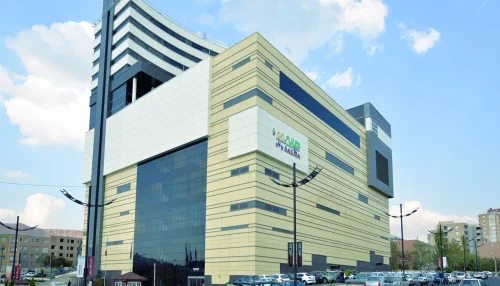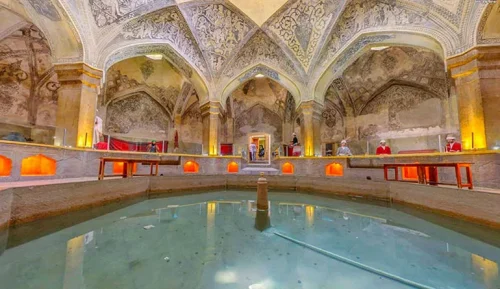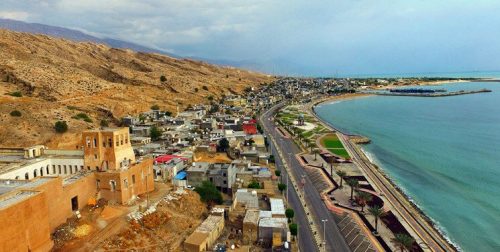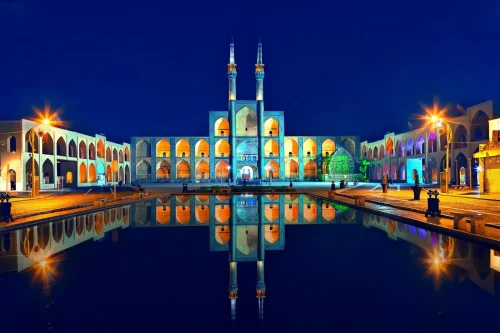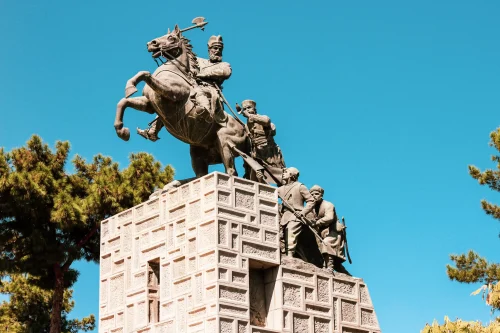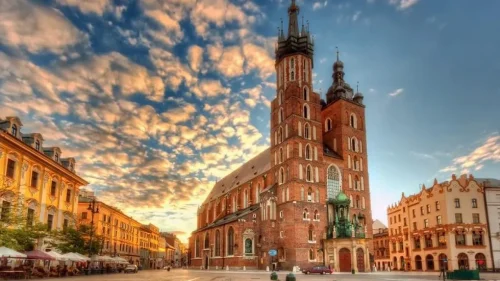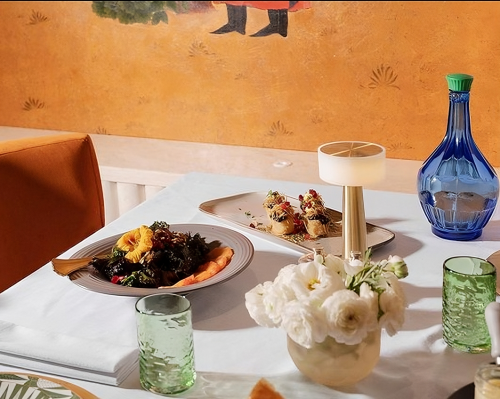Eid and Ramadan Hospitality: Operational Trends in Restaurants, Cafes and Hotels
In today’s fast‐evolving hospitality industry, the theme of Eid and Ramadan Hospitality: Operational Trends in Restaurants, Cafes and Hotels has become a central focus for establishments aspiring to blend tradition with modern excellence. Across the sector, from boutique cafes to expansive hotels, operators are rethinking every aspect of service by embracing a customer-centric approach that honors cultural heritage while integrating state-of-the-art innovations. Businesses are now curating experiences that not only celebrate the spiritual essence of Eid and the reflective nature of Ramadan but also address the practical demands of today’s dynamic market. Innovative interior design concepts that reflect local traditions, combined with contemporary aesthetics, are redefining the ambiance of dining and lodging environments. At the heart of these transformations is the desire to create spaces that evoke warmth, familiarity, and a sense of belonging for guests during these significant festive periods. Culinary teams are experimenting with traditional recipes and modern techniques alike to deliver menus that resonate with authenticity and creative flair, ensuring every dish tells a story of legacy and passion. This approach is especially evident during Eid and Ramadan, when operational trends in restaurants, cafes and hotels emphasize the importance of flexibility in service formats, such as pre-order digital reservations, contactless payment systems, and stringent safety protocols that meet global health standards. Managers and staff are receiving comprehensive training to balance efficient service with personalized touches that enhance guest satisfaction, making each visit a memorable journey. The integration of technology is another significant factor driving change; digital ordering platforms, real-time feedback loops, and intelligent scheduling systems allow for smoother operations and improved customer experiences even during peak times. Moreover, cultural programming and live events have become instrumental in weaving community narratives into the guest experience, reflecting the deep-rooted values of hospitality during the holy months. Celebratory events, hands-on culinary workshops, and interactive sessions on the historical significance of Eid and Ramadan hospitality have enriched the operational landscape, turning ordinary dining or lodging experiences into immersive cultural journeys. The ongoing commitment to excellence is further evidenced by the meticulous monitoring of guest feedback and continuous adaptation to emerging trends. Establishments that align with the core idea of Eid and Ramadan Hospitality: Operational Trends in Restaurants, Cafes and Hotels are setting benchmarks in the industry by fostering environments that are both innovative and deeply respectful of cultural traditions. As the market evolves, these operational shifts are not only expected to enhance revenue but also to reinforce the social and ethical dimensions of hospitality, thereby creating a seamless blend of modern service excellence with cultural authenticity. This holistic approach ensures that whether guests are observing a quiet Ramadan evening or participating in the joyful celebrations of Eid, they receive an experience that is crafted with precision, care, and an unwavering commitment to quality. In many regions, the celebration of Eid and Ramadan has transitioned from being a mere event to an all-encompassing experience that influences everything from interior ambiance and culinary innovation to service delivery and technological support. The essence of Eid and Ramadan Hospitality: Operational Trends in Restaurants, Cafes and Hotels is also reflected in the careful curation of dining spaces that accommodate families and individuals alike, offering tailored services that meet diverse preferences without compromising on style or comfort. Strategic partnerships, ongoing staff development, and adaptive menu engineering have further solidified the position of these establishments as pioneers in the hospitality domain. By continuously integrating guest insights and staying abreast of global trends, these businesses are not only redefining their operational paradigms but are also paving the way for a future where every visitor feels celebrated and valued. The current environment is highly competitive, and the ability to deliver on the promise of exceptional hospitality during Eid and Ramadan hinges on an intricate balance between time-honored practices and forward-thinking innovations. This dynamic equilibrium is the cornerstone of modern hospitality, ensuring that every operational detail—from ambiance to culinary artistry—is refined to perfection. As we look ahead, the trends emerging from this focus on Eid and Ramadan hospitality offer a roadmap for all establishments striving to achieve long-term success by embracing a philosophy that respects the past and welcomes the future with equal enthusiasm. Ultimately, it is this dedication to operational excellence and cultural sensitivity that transforms the act of dining and staying into a profound experience, one that continuously reaffirms the values of community, celebration, and enduring hospitality.
Eid and Ramadan Hospitality Insights
Eid and Ramadan Hospitality Strategies
Eid and Ramadan Hospitality Innovations
Eid and Ramadan Hospitality: Operational Trends in Restaurants, Cafes and Hotels – An Introduction to Modern Hospitality
At Iran Charter, we celebrate the spirit of Eid and Ramadan Hospitality: Operational Trends in Restaurants, Cafes and Hotels by blending time‐honored traditions with modern service excellence. Our approach to hospitality integrates a warm welcome with meticulous attention to detail, ensuring that every aspect—from interior design to culinary expertise—resonates with cultural depth and innovative flair. This introductory section sets the stage for a journey that explores how establishments are redefining guest experiences during these festive periods. With a focus on seamless operations, the narrative emphasizes respectful adherence to local customs while embracing cutting‐edge technologies and service protocols that support contactless services, digital reservations, and stringent sanitary measures. As we move through the evolving dynamics of this industry, each operational detail is carefully curated to create a memorable and immersive environment that honors the soulful essence of Eid and Ramadan.
Eid and Ramadan Hospitality: Operational Trends in Restaurants, Cafes and Hotels – Redefining Interior Atmospheres and Cultural Ambience
The interior design of hospitality spaces plays a central role in evoking the ambience of Eid and Ramadan Hospitality: Operational Trends in Restaurants, Cafes and Hotels. Emphasizing a fusion of classic cultural motifs with modern aesthetics, designers employ warm color schemes, ambient lighting, and thoughtfully curated furnishings that echo local heritage while appealing to contemporary tastes. Venues are segmented into distinct areas that cater to private gatherings, festive celebrations, and refined dining experiences, ensuring that every guest finds a setting that is both intimate and expansive. The creative integration of art, traditional textiles, and modern decor elements not only enhances the visual appeal but also enriches the overall storytelling of the space. This harmonious blend reflects a commitment to preserving cultural identity while simultaneously pushing the boundaries of design innovation—a philosophy that truly underpins the operational trends driving today’s hospitality landscape.
Eid and Ramadan Hospitality: Operational Trends in Restaurants, Cafes and Hotels – Elevating Culinary Excellence and Menu Diversity
Culinary innovation is at the heart of Eid and Ramadan Hospitality: Operational Trends in Restaurants, Cafes and Hotels. Expert culinary teams meticulously develop diverse menus that capture the essence of traditional recipes and infuse them with modern techniques, ensuring every dish tells a rich story of heritage and innovation. The dynamic menus feature both time‐honored traditional fares and contemporary interpretations, catering to a wide spectrum of tastes—from plant‐based specialties to meat-centric creations prepared with precision and artistic finesse. Each ingredient is chosen with care, reflecting an unwavering commitment to quality and freshness that redefines the dining experience. Celebratory dishes, hand-crafted with passion and a deep respect for cultural narratives, not only satiate the palate but also serve as a culinary tribute to the festive spirit of Eid and Ramadan, making every meal a celebration of history, innovation, and community.
Eid and Ramadan Hospitality: Operational Trends in Restaurants, Cafes and Hotels – Ensuring Impeccable Service and Health Standards
In today’s ever‐evolving hospitality environment, ensuring exceptional service while maintaining the highest health and safety standards is paramount for Eid and Ramadan Hospitality: Operational Trends in Restaurants, Cafes and Hotels. Service teams are trained to provide warm, attentive, and efficient service from the moment guests arrive until they depart, with every interaction underscored by the principles of care and meticulous attention. Innovative sanitation protocols are seamlessly integrated into daily operations, including advanced digital ordering systems, contactless payment procedures, and comprehensive health checks, all designed to foster an environment where guests can dine safely and comfortably. This commitment to operational excellence is further enhanced by continuous staff training and the strategic utilization of technology—ensuring that every detail contributes to a flawless, hygienic, and memorable guest experience.
Eid and Ramadan Hospitality: Operational Trends in Restaurants, Cafes and Hotels – Celebrating Cultural Events and Culinary Workshops
Recognizing that a true hospitality experience extends beyond the plate, many establishments are embracing the trend of cultural programming and interactive events under the banner of Eid and Ramadan Hospitality: Operational Trends in Restaurants, Cafes and Hotels. Special events, including cultural nights, live music performances, and hands‐on culinary workshops, are designed to create a vibrant confluence of art, history, and gastronomy. Guests are invited to participate in interactive sessions where they can learn the secrets behind traditional recipes, explore the historical evolution of local cuisines, and experience the artistry of food preparation in a live setting. These events not only serve to educate and entertain but also help to forge a deeper connection between the community and the culinary heritage that defines these festive periods. By fostering this environment of shared cultural appreciation, the hospitality sector is continually setting new benchmarks for immersive guest experiences.
Eid and Ramadan Hospitality: Operational Trends in Restaurants, Cafes and Hotels – Measuring Satisfaction and Driving Continuous Improvement
A relentless focus on guest satisfaction is a cornerstone of Eid and Ramadan Hospitality: Operational Trends in Restaurants, Cafes and Hotels. Forward-thinking establishments regularly solicit direct feedback through digital platforms and in-person communications, creating a feedback loop that drives continuous improvement across all service areas. Innovations in real-time data analytics have enabled managers to swiftly identify emerging trends, address concerns, and adapt operational strategies to meet the evolving needs of their clientele. This proactive approach ensures that every guest encounter is refined and enhanced over time, fostering a culture of excellence and an enduring commitment to service quality. Through a balanced integration of tradition with modern customer engagement techniques, every experience is methodically reimagined, ensuring that the legacy of true hospitality continues to flourish long into the future.
Eid and Ramadan Hospitality: Operational Trends in Restaurants, Cafes and Hotels – Enhancing Convenience with Digital Innovations
In an era where technology and tradition converge, digital platforms have become essential facilitators of Eid and Ramadan Hospitality: Operational Trends in Restaurants, Cafes and Hotels. Establishments are now leveraging state-of-the-art online systems to streamline reservations, showcase dynamic menus, and deliver exclusive offers directly to customers. Digital ordering platforms, coupled with real-time reservation and feedback systems, not only simplify the guest experience but also optimize operational efficiency during peak holiday periods. In addition, virtual culinary classes and interactive live events have expanded access to traditional cooking methods and regional flavors, allowing enthusiasts and amateurs alike to connect with the art of hospitality from the comfort of their own homes. This digital transformation reinforces the industry’s commitment to innovation while providing a bridge that connects modern conveniences with the rich cultural traditions of Eid and Ramadan.
Eid and Ramadan Hospitality: Operational Trends in Restaurants, Cafes and Hotels – Merging Traditional Values with Contemporary Innovation
A defining characteristic of the modern hospitality landscape is the ability to seamlessly merge tradition with contemporary innovation—a fundamental aspect of Eid and Ramadan Hospitality: Operational Trends in Restaurants, Cafes and Hotels. Culinary experts and interior designers alike are drawing inspiration from historical narratives, local art forms, and time-tested recipes, reinvigorating them with progressive techniques and design philosophies. This synergy between the past and the present is vividly expressed throughout every service touchpoint, where classic flavors meet modern culinary artistry and enduring cultural motifs are interwoven with sleek, functional decor. The result is an environment that pays homage to ancestral practices while simultaneously addressing the demands of today’s dynamic, technology-driven marketplace. Such a balanced convergence not only reassures traditionalists but also captivates a global audience looking for innovative yet culturally resonant hospitality experiences.
Eid and Ramadan Hospitality: Operational Trends in Restaurants, Cafes and Hotels – An Invitation to Experience Timeless Cultural Elegance
Ultimately, every facet of Eid and Ramadan Hospitality: Operational Trends in Restaurants, Cafes and Hotels is an invitation to step into a world where cultural heritage and operational innovation coalesce to create unforgettable moments. At Iran Charter, our vision is to ensure that every visit transforms into a celebration of legacy—where meticulous attention to service details, artfully prepared dishes, and a soulful ambience come together in perfect harmony. Guests are encouraged to immerse themselves in an experience that transcends the ordinary, discovering a deep connection with age-old traditions while enjoying modern luxuries. Each carefully curated element of our hospitality narrative is designed to evoke a sense of belonging and inspire an enduring appreciation for the rich cultural tapestry that defines this festive season. In this era of transformation, we remain dedicated to offering a timeless journey that not only honors the past but also paves the way for a future of imaginative, heartfelt hospitality.
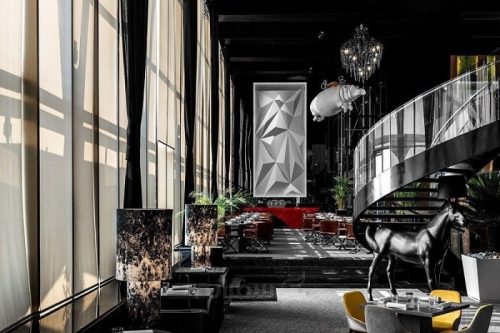
Frequently Asked Questions
- Are restaurants in Dubai open during Ramadan?
- Yes, since 2021, restaurants and cafes have been operating with the necessary permits during Ramadan.
- Is consuming alcohol in public places allowed during Ramadan in Dubai?
- No, alcohol consumption in public areas is strictly prohibited during Ramadan.
- Is a modest dress code required in Dubai during Ramadan?
- Yes, wearing modest and respectful attire is recommended to honor local customs.
- What are the rules regarding eating and drinking in public during Ramadan?
- Eating, drinking, and even smoking in public places are prohibited until sunset, and violations may result in fines.
- Do shopping centers in Dubai change their operating hours during Ramadan?
- Yes, many shopping centers adjust their hours during Ramadan, with some staying open until after midnight.
- How can one enjoy Iftar events in Dubai?
- Dubai hosts traditional tents and offers a variety of Iftar programs that allow visitors to experience local culture.
- What should be considered when choosing a hotel in Dubai during Ramadan?
- It is essential to select a hotel that provides suitable Iftar facilities and special programs tailored for the season.
- Are special permits issued for restaurants and cafes during Ramadan?
- Yes, special permits are granted to ensure that restaurants and cafes operate effectively during this period.
- Is it advisable to use public transportation in Dubai during Ramadan?
- Yes, public transportation is recommended; however, users should be mindful of adjusted schedules during Ramadan.
- Are cultural and artistic events organized in Dubai during Ramadan?
- Yes, a range of cultural, artistic, and exhibition events are held during Ramadan, offering enriching experiences.
- How can one best plan a trip to Dubai during Ramadan?
- Planning should include reviewing operating hours, familiarizing yourself with local events, and adjusting your itinerary accordingly.
- Are Dubai’s tourist attractions open during Ramadan?
- Yes, many tourist attractions remain open during Ramadan, though they might operate with modified hours.
- Do independent cafes and restaurants continue offering their services during Ramadan?
- Yes, numerous independent venues continue to provide their services despite changes in daily schedules.
- What precautions should travelers take when moving around Dubai during Ramadan?
- It is important to observe local customs, pay attention to updated timings, and comply with transportation regulations.
- Do Eid al-Fitr celebrations in Dubai offer special discounts for visitors?
- Yes, Eid celebrations often include festive events and special discounts at various shopping and entertainment venues.
- What recommendations can help visitors experience the local culture in Dubai during Ramadan?
- Participating in Iftar events, visiting mosques and cultural centers, and respecting local customs can enhance your cultural experience.


